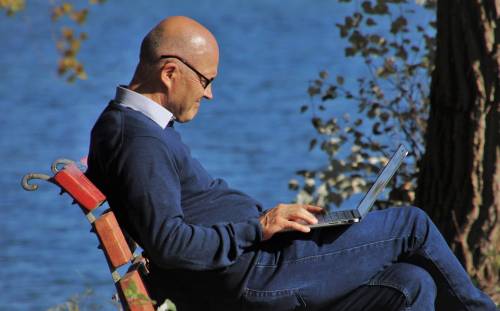The Rev. Jessica Derise is already reviving a congregation fatigued by COVID-19 and Zoom worship
February 28, 2022

The Rev. Jessica Derise
The Rev. Jessica Derise has served as a mission co-worker for more than a year, but for the first time is able to do so in person.
Derise is serving in an interim capacity as chaplain for the Moscow Protestant Chaplaincy (MPC), an international congregation founded in the 1960s as a Protestant worshiping community for the U.S. Embassy. From the beginning, five denominations have worked together to ensure that the congregation has had pastoral leadership — the Presbyterian Church (U.S.A.), the Evangelical Lutheran Church in America, the United Methodist Church, the American Baptist Church and the Reformed Church of America.
Ellen Smith, World Mission’s regional liaison for Russia, Belarus, Ukraine and Poland, met Derise in Moscow to introduce her to the partners there. Smith and her family lived in Russia for more than 10 years as mission co-workers.
“Jessica is already reviving the MPC congregation fatigued by COVID restrictions and Zoom worship, brainstorming with colleagues in the social ministry for trafficked people, and in conversation with ELCER (the Evangelical Lutheran Church of European Russia) about ways to engage with a French-speaking congregation,” she said. “After 18 months of ministering from afar, she has hit the ground running.”
Smith said with the collapse of the Soviet Union three decades ago, the congregation left the Embassy compound and began serving the larger expat community in the city. During the days after the collapse, MPC responded to the dire needs of the Russian community around them with soup kitchens to feed the elderly. During that time, the congregation attracted members from all over the English-speaking world, including students from many African and Asian countries.
During the impoverished years of the early 2000s, there were many racially motivated attacks in Moscow. With the help of the African members of the community, MPC began to respond to the needs of young Africans who had been attacked, many of whom had lost their documents or become homeless. As they got to know the needs of this community, they expanded their ministry.
Today, the social ministry of MPC is working with people who have been trafficked into Russia. They have a medical advice center, a food sharing ministry, a clothing ministry, language lessons, and health and nutrition lessons. COVID-19 has been difficult for this ministry, but, except for the periods of lockdown in Moscow, it has continued to function.
Smith said Zoom fatigue has been real, and the congregation there has suffered without a pastoral presence. The Presbyterian Mission Agency implemented a travel ban when the pandemic began in March 2020, but in August 2021, Derise was granted an exception to travel, arriving in Moscow on Aug. 30. The news of her arrival spread throughout the congregation and her first Sunday saw a nearly tenfold rise in attendance. She was officially installed on Sept. 12. She is focusing on creative ways to engage members.
She is partnered with MPC and the Social Ministry, as well as ELCER.
Derise was ordained for ministry in the UCC in August 2010. She earned an M.Div. from Columbia Theological Seminary in 2005 and is a board-certified chaplain. She received a bachelor’s degree from the University of Florida in 1993 in English Education. She has done settled and interim pastor work for Presbyterian, Lutheran and UCC congregations. She has also served as a trauma and hospice chaplain.
Kathy Melvin, Director of Mission Communications, Presbyterian Mission Agency
Let us join in prayer for:
PC(USA) Agencies’ Staff
Amy Lewis, Mission Specialist, Presbyterian Peacemaking Program, Presbyterian Mission Agency
Bridgette Lewis, Mission Specialist, Young Adult & National Volunteers, Presbyterian Mission Agency
Let us pray
You who are Word made flesh, we thank you for the many ways we have to spread your good news. May the presence of your churches reach many who are in need of ministry and the news of your living presence in our midst.




 In the final episode of Lydia’s Listening Session, hosted by the offices of
In the final episode of Lydia’s Listening Session, hosted by the offices of 

 News, media, information, publishing and the spiritual or divine are inseparable — digital or otherwise. This fact has been laid bare since the pandemic began. Churches have had to respond quickly to increased anxieties and new challenges, all while reimagining the ways we gather as disciples of Jesus. How can they worship and serve faithfully in a strange time, when we are not gathered in bodily presence?
News, media, information, publishing and the spiritual or divine are inseparable — digital or otherwise. This fact has been laid bare since the pandemic began. Churches have had to respond quickly to increased anxieties and new challenges, all while reimagining the ways we gather as disciples of Jesus. How can they worship and serve faithfully in a strange time, when we are not gathered in bodily presence?

